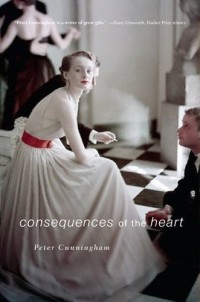The Borrower by Rebecca Makkai
 Tuesday, June 7, 2011 at 9:41AM
Tuesday, June 7, 2011 at 9:41AM 
Published by Viking on June 9, 2011
The premise of Rebecca Makkai’s entertaining first novel is farfetched. Librarian Lucy Hull takes an unintended road trip with ten-year-old Ian Drake, son of fundamentalist parents who have enrolled Ian in classes held by the notorious Pastor Bob, a “formerly” gay man who conducts classes designed to turn gay kids straight. To Lucy’s dismay, Ian’s mother seems intent on saving him from the evil world of children’s literature. The road trip, taken without the knowledge or consent of Ian’s parents, brings Lucy and Ian into contact with the man Lucy is dating (a musician whose most recent composition resembles the Mr. Clean jingle) and her father, a Russian immigrant with a hidden past and shady ties to organized crime who is nonetheless a decent fellow -- at least when it comes to Lucy. If the road trip happened in the real world, reporters would be asking Lucy “What were you thinking?” as she’s hauled off to prison. It’s never quite clear, even to Lucy, what she’s thinking, but the unlikely set-up makes it possible for Makkai to tell a funny story. Makkai somehow manages to make it seem real, or perhaps the story has sufficient charm to encourage the reader’s suspension of disbelief.
As much as I enjoyed the story, I was left with a “Is that all there is?” feeling at the novel’s end, which seems too neat and painless given the improbable events that precede it. As I finished reading I was wondering what point Makkai intended to make. Of course, not all novels need to have a point; it’s often enough to tell a good story while introducing the reader to believable characters. Yet The Borrower seems determined to deliver a message. In that task, the novel fails -- or, at least, I failed to find a coherent message. At one point, Lucy decides that it’s impossible for people to save people, but she’s convinced that books can save people (to that end, Lucy encourages Ian to read books that will save him from the closed-minded dictates of his parents’ religion). I’m not sure that observation makes sense: if a book opens a reader’s mind, information and advice coming from a trusted friend can likely achieve the same end. At another point, Lucy observes that people cannot change. While it’s true that people can’t change immutable characteristics of their birth (such as sexual identity, which Pastor Bob is determined to “fix” in the classes that Ian attends), it is also true that people can change many aspects of their life. Lucy, in fact, comes to realize that she needs to change her life, but that realization is underwhelming, given that she decides she doesn’t like her job, or more particularly her boss, and concludes she should find a new one. Since it was clear from the novel’s opening pages that Lucy’s boss was unlikable, it isn’t easy to understand why Lucy took so long to see the obvious. If the road trip was a journey toward self-awareness for Lucy, it was a long drive to a trivial destination.
Having said all that, I fear I've made my reaction to the novel seem more negative than it actually was. I appreciated Makkai’s ability to create engaging characters and to incorporate certain devices (like a very funny list of the things a ten-year-old will do while brushing his teeth) that make The Borrower an easy, amusing read. While I was ultimately disappointed that the novel didn’t have more substance, I don’t regret the time I spent breezing through it. The scenes that feature precocious ten-year-old Ian work well, and if Lucy’s attempt to learn something meaningful about her own life seems incomplete, that didn’t stop me from chuckling at the funny parts -- and there are a good many of them. This is a promising first novel, one that encourages me to read Makkai’s next book. I only hope it carries a bit more weight than this one.
RECOMMENDED



